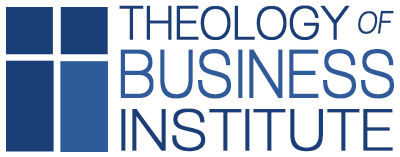C.S. Lewis’ Marketplace Strategy for Transforming a Nation

 I have noticed that many Christians who sense God calling them to do business as ministry assume this means selling Christian-themed stuff to Christian people (i.e. Christian-themed coffee shops, Christian-themed books, Christian-themed music, etc.). This approach is simply one marketing model, and it is not necessarily more or less righteous than any other marketing model. In most parts of the world, people who identify as Christians represent a massive percentage of the population, so it makes good business sense to have Christ-centered companies serving an explicitly “Christian” market by providing Christian-themed goods and services.
I have noticed that many Christians who sense God calling them to do business as ministry assume this means selling Christian-themed stuff to Christian people (i.e. Christian-themed coffee shops, Christian-themed books, Christian-themed music, etc.). This approach is simply one marketing model, and it is not necessarily more or less righteous than any other marketing model. In most parts of the world, people who identify as Christians represent a massive percentage of the population, so it makes good business sense to have Christ-centered companies serving an explicitly “Christian” market by providing Christian-themed goods and services.
At the same time, we are called to disciple entire industries (see previous post, “4 Steps to Making Your Industry a Disciple of Jesus”). This will require that we, as Christians in the marketplace, set our sights on broader market shares than merely those that are explicitly Christian-themed.
Legendary Christian author, C.S. Lewis, has provided an outstanding model of how to disciple an industry while allowing the fullest expression of his personal faith and identity. The Times, which is the main British national daily newspaper, ranked Lewis as 11th on its list of “The 50 Greatest British Writers since 1945.”[i] He wrote books explicitly for a Christian audience while writing others—notably, the Chronicles of Narnia series—for a general audience. Explaining how his industry, book publishing, could be used for the “re-conversion” of the entire nation of England, C.S. Lewis wrote in his book, God in the Dock,
We must attack the enemy’s line of communication. What we want is not more little books about Christianity, but more little books by Christians on other subjects – with their Christianity latent. You can see this most easily if you look at it the other way around. Our Faith is not very likely to be shaken by any book on Hinduism. But if whenever we read an elementary book on Geology, Botany, Politics, or Astronomy, we found that its implications were Hindu, that would shake us. It is not the books written in direct defense of Materialism that make the modern man a materialist; it is the materialistic assumptions in all the other books. In the same way, it is not books on Christianity that will really trouble him. But he would be troubled if, whenever he wanted a cheap popular introduction to some science, the best work on the market was always by a Christian. The first step to the re-conversion of this country is a series, produced by Christians, which can beat the Penguin and the Thinkers Library on their own ground. Its Christianity would have to be latent, not explicit: and of course its science perfectly honest. Science twisted in the interests of apologetics would be sin and folly.
Confront Secular Humanism in the Marketplace
Lewis stated, “We must attack the enemy’s line of communication.” He recognized that Satan has been using Secular Humanism, a godless worldview under the guise of a non-religion, as a primary tool for leading people and cultures away from God. Secular Humanists organize and operate as dogmatic disciples of their religion—that is, the worship of one’s self—without the stigma of being known as followers of a “religion.” Because the major religions inhibit them from expressing this worship of themselves, they preach that religion is the problem. Preaching “the separation of Church and everything,” they have been free to infiltrate and indoctrinate the major spheres of influence in society with their religion: Family, Business, Government, Entertainment, Media, Religion, and Education. When they preach that God is irrelevant to these spheres of influence, what they mean is that worshipping God inhibits our freedom to express the worship of ourselves.
In every sphere of cultural influence, Lewis wanted Christians to challenge the weak foundation, inconsistencies, deceit, and selfish agendas of Secular Humanists lest Christians continue to be marginalized in Western society.
Produce the Best Work on the Market
Lewis’ statement about keeping our Christianity “latent” has been taken out of context many times. I have seen it used several times as an excuse for Christians to be undifferentiated and lukewarm among nonbelievers in the culture. When Lewis spoke of the need for “latent” Christianity, he was not encouraging Christians to put the light of the world, the glory of Jesus, “under a basket” so that it would be hidden from the world (Matt. 5:15). Just the opposite is true.
As we read the entire passage above, we understand that “latent” Christianity was part of Lewis’ strategy for the “re-conversion of this country [England].” In other words, he wanted to see his entire nation become a disciple of Jesus through Christians influencing from the tops of their fields, not merely Christian-themed fields and niche sub-industries. Lewis envisioned a day in his industry, book publishing, when “the best work on the market was always by a Christian.”
For Lewis, this vision of discipling an entire nation could not be realized only by marketing explicitly Christian ideas, products, and services to Christian people. It would require Christians to create and market outstanding ideas, products, and services—built on their Christian faith and expressed through their spiritual gifts—that would cause them to rise to high positions of influence in their respective fields and industries. That is why he admonished Christians by saying, “What we want is not more little books about Christianity, but more little books by Christians on other subjects.”
Pulpit ministers have the calling and freedom to be explicit about their faith because they are almost always ministering to a captive audience of like-minded believers in a religious setting.
Marketplace ministers, on the other hand, are called to more “latent” and covert expressions of our faith because we are almost always ministering to unbelievers in a marketplace setting.
Jesus said, “The Kingdom of Heaven is like the yeast a woman used in making bread. Even though she put only a little yeast in three measures of flour, it permeated every part of the dough” (Matt. 13:33). We are called to be the yeast that permeates and transforms the dough from the inside out.
Discussion: What stands out to you about C.S. Lewis’ passage above from his book, God in the Dock? Do you agree that marketplace Christianity should be “latent”?
Sources:
“The 50 greatest British writers since 1945”. The Times. 5 January 2008.
C.S. Lewis, God in the Dock (Grand Rapids: Eerdmans, 1970), 91.



